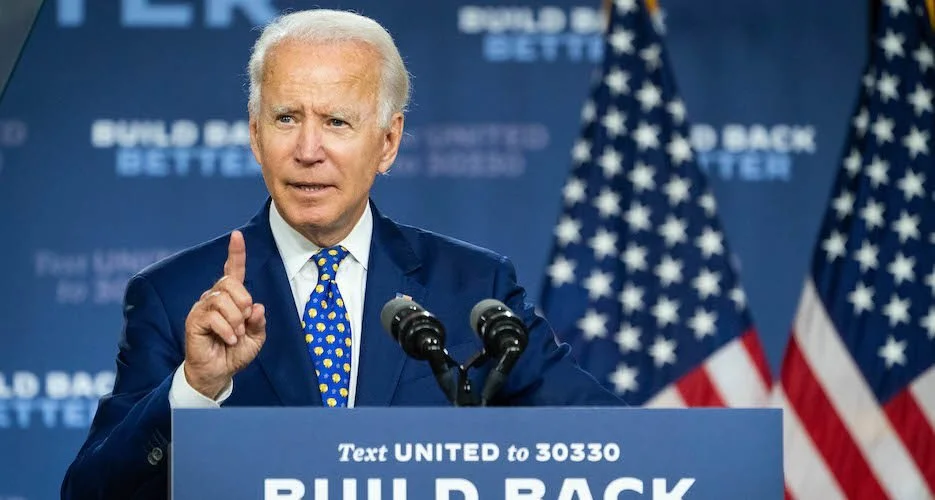Can North Korea Policy with a Calibrated, Diplomatic Approach Bring New Hope to US-North Korea Relations?
On April 30, the Biden administration announced a finalized North Korea policy review. Although the details of President Biden’s strategy are still forth-coming, the policy aims to strike a balance between President Trump’s all-or-nothing demands and President Obama’s arm’s-length approach. President Trump’s strategy of demanding complete denuclearization or a grand bargain before lifting any sanctions has been rejected by the Biden administration. Instead, the administration seeks to work towards progress while at the same time not ignore North Korea with strategic patience.
President Biden Recently Announced a New North Korea Policy
By striking a middle ground, the Biden administration hopes to forge a new path with North Korea by taking a calibrated approach toward diplomacy with the country. This involves incentives for each progressive move made, with the ultimate goal being denuclearization. However, dealing with North Korea is very challenging, involving interactions with multiple countries, and thus far this year, the United States has been unable to re-engage communication with Pyongyang.
North Korea’s initial response to President Biden has not been favorable. Biden’s administration will need to significantly tone down their rhetoric if they want a positive response from Pyongyang. Thus far, North Korea states that it won’t engage with the U.S.’s hostile policy.
But North Korea is under great pressure to boost their economy. The global pandemic prompted North Korea to close its borders at the end of January 2020, with few imports and exports going in and out. U.S. and U.N. sanctions, coupled with flooding and border closings, have taken a huge toll on the economy. Relieving sanctions and economic incentives will prove a key factor in any potential negotiations with North Korea.
As one of the few Americans to have ever lived and worked in North Korea for over a decade, I have come to realize that US talks with North Korea are largely unsuccessful because the two sides come from two different worlds. They don’t understand each other’s language or culture and thus interpret the other’s actions and intentions from their own misinformed perspective.
As I mentioned in my memoir, meaningful talks only ever happen on the basis of mutual understanding. To get there the two sides have to be able to come to the negotiating table on equal footing. All that is necessary for two parties headed in opposite directions to come together is the willingness to turn and head towards each other.
Memoir Describing Over 10 Years in North Korea
Years of sanctions have not thrown North Korea off its determined course towards nuclear weapons. Then, three years ago, the presidents of North and South Korea met in the Demilitarized Zone on the 38th parallel for the first time since Korea was divided more than 70 years ago. Talks of peace and a treaty to end the Korean War began, and progress seemed rapid. The Singapore Summit on June 12, 2018 soon followed, resulting in President Trump meeting Chairman Kim Jong-Un.
What is North Korea really after? Pyongyang’s immediate concern is economic stability. However, I do not think this is the ultimate, long-term goal. I truly believe that DPRK’s real objective is to finally declare an end to the Korean War, achieve national security, and strive towards their deep desire for unification on the Korean Peninsula.
While South Korea’s outlook on reunification fluctuates with each new administration, North Koreans remain consistently enthusiastic. Every North Korean that I have met expresses strong sentiments for unification with South Korea. Songs such as “Nice to Meet You” and “Let’s Meet Again”, and “Unification” emphasize North Korea’s heart towards Koreans outside their borders.
But after years of living in North Korea and also South Korea, it has become clear to me that the two countries are now fundamentally different. Their thinking, culture, and even language have diverged over the past 70 years. And their political and economic systems are in stark contrast to each other.
One thing is clear. Denuclearization will not be possible if there is no official peace treaty to end the Korean War. But, out of all of the North Korea policies thus far implemented by the United States, perhaps a calibrated, diplomatic approach is most hopeful.
If the United States is able to bring North Korea to the table and if the two nations are able to follow through by keeping small promises, a process of trust-building may make the bigger deals more possible. Starting with tangible steps or easing aspects of U.S. policy, such as allowing the travel ban to North Korea to expire and exempting humanitarian organizations from sanctions, would be a good start. Eventually, international relations might even be restored, but first there must be peace.

